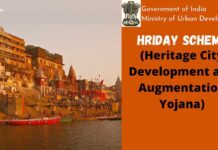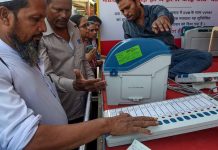The Gujarat government has decided to amend several provisions of the Disturbed Area Act soon. The amendments will be introduced through a bill to be tabled during the monsoon session of the Assembly that is likely to be held in August. The government took the decision after considering several recommendations received from different stakeholders.
After reviewing the Act, the government found out that the legislation was dated and had several loopholes which people were using to breach the same. “We observed that many of the people misuse the provision of power of attorney when they transfer the rights on properties,” said Revenue Minister Kaushik Patel said. “This is simply a breach of the Disturbed Area Act and that leads to a huge loss of revenue to the government also. We are going to alter the provisions taking power of attorney in the act through the amendment.”
He said the Act needed amendments to factor in changes brought about by rapid urbanisation in cities. “There was no concept of redevelopment of residential sites when the Act was framed, but now a days, we could see that many residential sites in cities are being redeveloped by private developers and they bypass the Disturbed Area Act by using some tactics,” Patel added.
The minister also added that the state government had amended the Act for cooperative societies which includes residential societies built under the same Act. That is another reason why the Act needs to be amended. The state government has recently decided to add 72 new areas of Ahmedabad city to the list of sites governed by the Act.
The law enacted in 1991 in the State contemplates that a district collector’s permission is needed before transfer of properties in communally sensitive areas that are termed as “disturbed areas” in law. The law is already in force in the city and the State has earmarked certain areas, especially those with sizeable population of Hindus and Muslims.
Act challenged in HC
As of now, areas under 21 police stations in Ahmedabad alone are declared ‘disturbed’. The act was implemented in areas of Surat and Vadodara as recent as last year. In Surat it was implemented in Limbayat area at the behest of Sangeeta Patil, BJP MLA of the area.
In May 2018, Disturbed Areas Act was challenged in High Court by Danish Qureshi, an activist working for minority rights.
“It is a failure of the state government if there is no communal harmony in the state and such an Act is implemented. But NCRB data states that Gujarat hasn’t seen communal violence more than other states. The situation isn’t alarmingly disturbing in Gujarat. Besides, this Act violates the very rights guaranteed by the constitution and creates trouble for both Hindu and Muslim community in transaction deal of properties,” says Nishant Verma, the advocate who filed the petition.
“The state government has been bringing more areas under the Act not because it is necessary but because it serves the political agenda,” stated Qureshi.
“We have mentioned in our petition that a particular community has been targeted through these notifications imposing Disturbed Areas Act in certain areas. The conditions needed to impose the Act are clearly missing in these cases,” stated Kruti Shah, an Ahmedabad-based lawyer who has challenged the notification to impose Disturbed Areas Act in certain areas of Surat till the year 2021.
Security concern
A sense of insecurity among the Muslims in Gujarat has manifested itself even in realty rates in Surat, with property prices in Muslim-dominated areas being much higher than in other similar localities of the city.
Sources in the city’s realty sector say that even the rents of residential property in Muslim areas are higher than elsewhere in Surat. Newly developed minority localities are costlier than old minority areas.
The sources said property in Muslim-dominated areas like Shahpore, Zampha-bazaar, Rani Talao, (Kopchiwad), Salabatpura, Mughlisara and Rander are beyond the reach of middle-class Muslim families.
Officially, the rate in these areas is between Rs 1,800 and Rs 2,500 per sq ft but buyers usually have to pay between Rs 3,000-4,000 per sq ft. Moreover, even to buy at these rates, customers have to pay more than 45 per cent (in some cases 60 per cent) of the total price in cash. Even in posh areas such as City Light, LP Sawani, Honey-Park Road, and Bhatar Road (non-Muslim areas), the rate is around Rs 2,500-3,000 per sq ft.
“Some builders purchase two adjoining old houses in these areas and then build an apartment building there,” said Rashid Pathan, a real estate broker in Surat.
Now, the rent of a 1-BHK flat in these areas can be anywhere between Rs 3,500 and Rs 5,000. The price of old one-floor houses on 12 x 30 sq ft of land is Rs 25 lakh per house.
In contrast, similar property in non-Muslim areas would be in the range of Rs 15-20 lakh while the rent for a 1-BHK flat is less than Rs 2,500.
“As members of the minority community prefer to live in areas which they know well, they are willing to pay the high prices demanded by the developers. Many developers even reduce the size of the flat for greater profit but the customers seldom complain.”
Pathan added that prices in newly-developed Muslim areas are much higher than in old minority-dominated localities. For example, a 1-BHK flat at Rander-Gorat road with all the necessary facilities can cost between Rs 25 lakh and Rs 35 lakh, he said.
Again, the rent of a similar flat can be anywhere from Rs 9,000 to Rs 13,000. Recently, work on a row-house project (Alvi Row Houses) has started in the locality and the cost of each row-house is Rs 80 lakh, he added.
“The reason is simple,” said Kartik Patel, a city-based enveloper. “Muslims won’t shift to non-Muslim areas due to a sense of insecurity, and because of cultural and religious considerations. Moreover, they prefer to live in close-knit communities rather than independently in luxury apartments in other areas.”
The high property prices in minority-dominated areas have forced middle-class Muslim families to look for houses in less developed areas such as Limbayat, Dumbhal, Umarwada, Anjana and Unn. Many spots in these localities lack even basic facilities such as water, drainage and roads. Yet, people are buying properties here.
“My monthly income is Rs 20,000, yet I cannot even think of buying property in one of the better Muslim localities of the city,” said Akram Memon, a resident of Sahil Nagar in Unn. “I purchased this house (11 x 25 sq ft) for Rs 7 lakh, just 18 months back. People are now ready to pay Rs 12 lakh for the same house.”
ABOUT THE ACT
- The Gujarat Prohibition of Transfer of Immovable Property and Provision for Protection of Tenants From Eviction From Premises in Disturbed Areas Act, 1991, was basically formed to avoid clash between communities and forceful encroachment on properties.
- The Act is widely known as ‘Disturbed Area Act, 1991’. Properties in these areas can be sold to members of a different community only with prior permission from the collector.
- ( www.siyasat.net news desk)



































